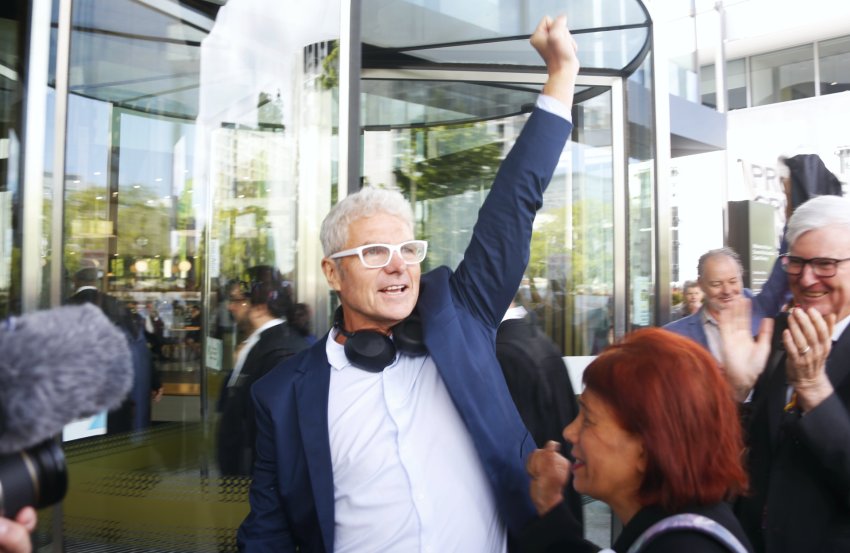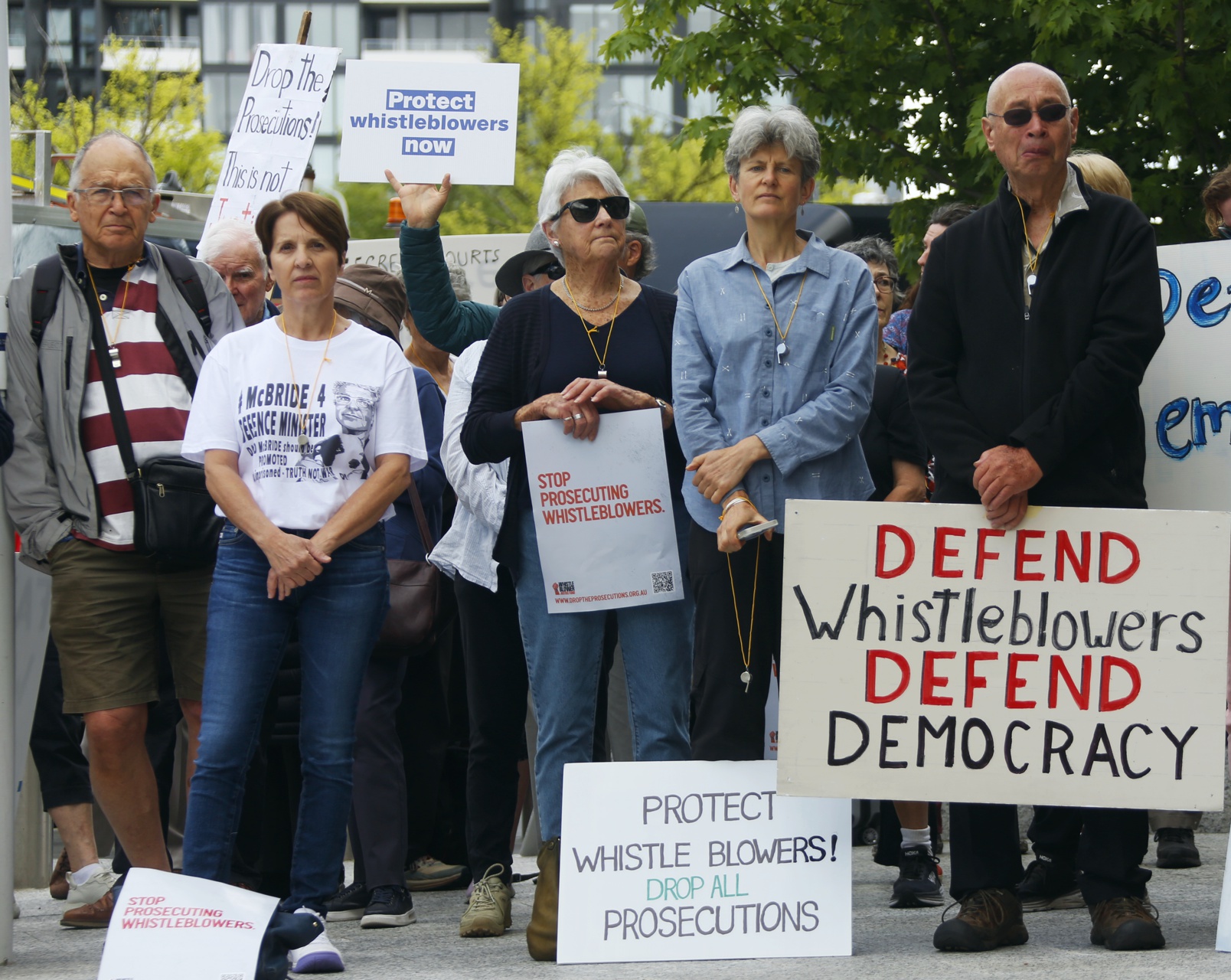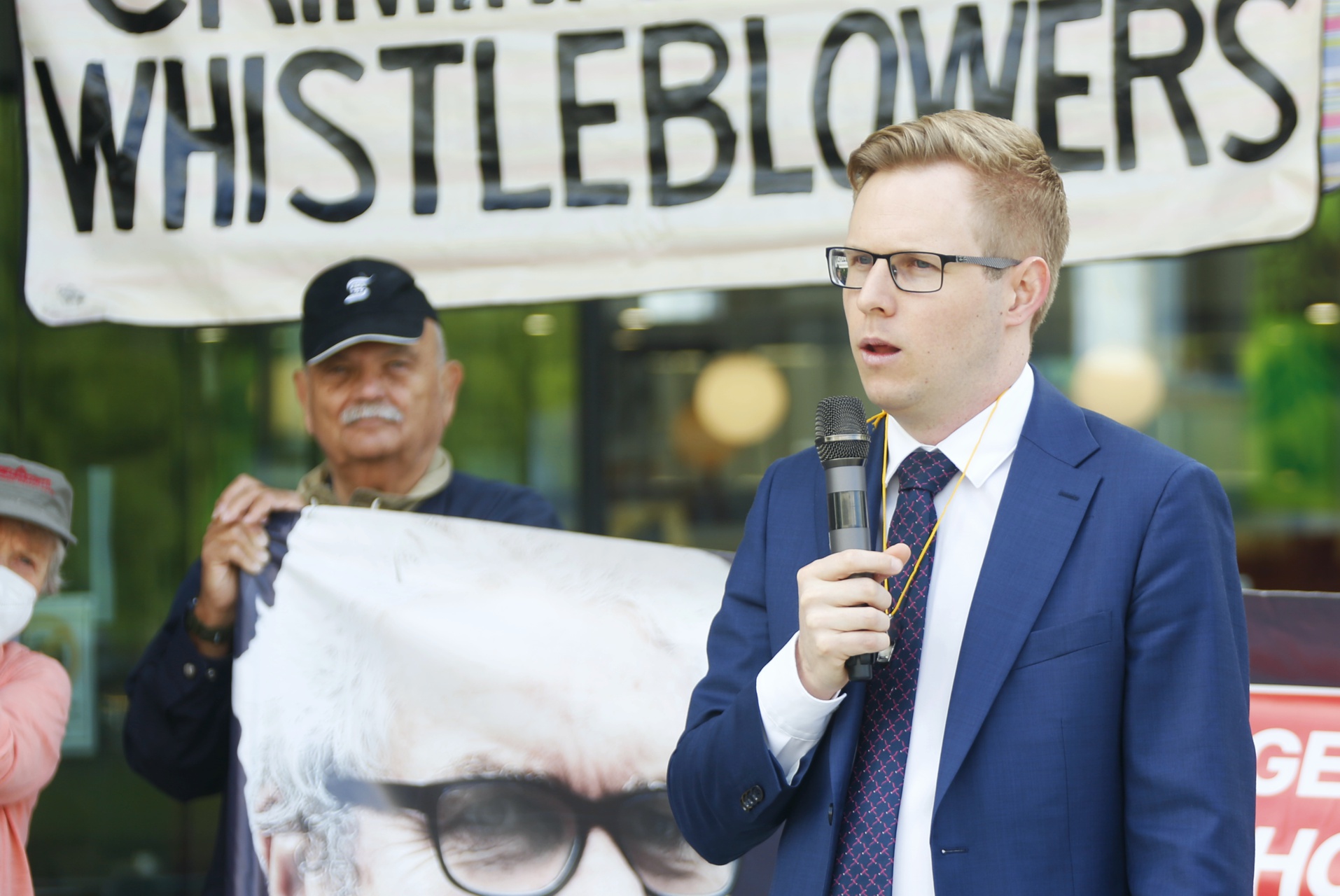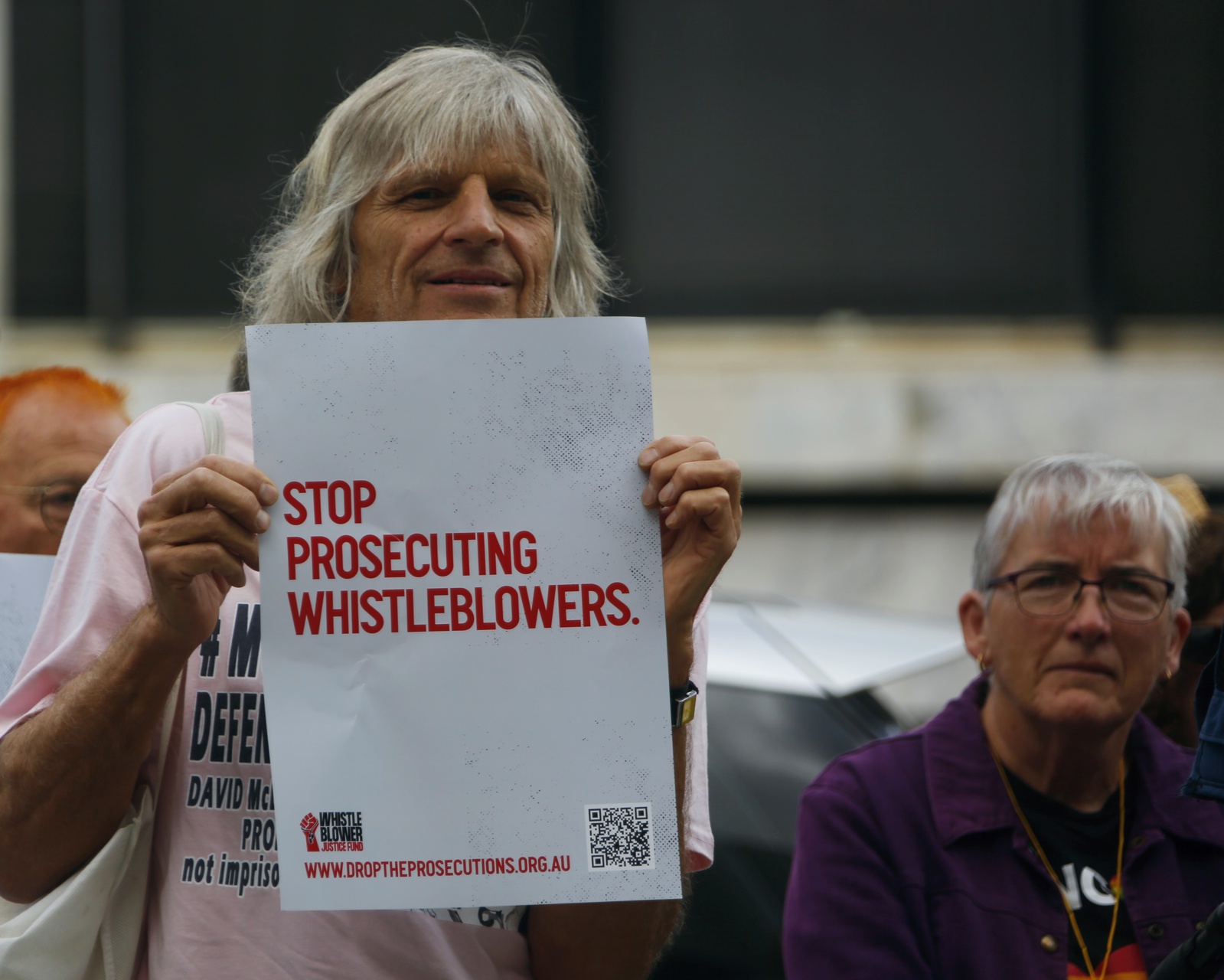
“Today I serve my country,” war crimes whistleblower David McBride told cheering supporters outside the ACT Supreme Court on November 13. “My question for Anthony Albanese is: who do you serve?”
McBride was given a hero’s welcome when he arrived at court.
Labor Attorney General Mark Dreyfus had the power to stop the prosecution but didn’t. Both major parties, in both houses of parliament, voted on the same day against demanding Dreyfus act for justice.
For the first three days the court has had to consider the question whether military officers have any duty other than following orders.
The government argued that soldiers have an obligation to follow lawful orders, without exception.
McBride on X described this as “appealing Nuremburg”. After World War II, the Nuremburg trials found it was illegal for Nazi officers to defend their actions with the claim they were “just following orders”.
The Supreme Court on November 15 decided to support the government’s argument on the question of “duty”. McBride’s team has appealed this, which delays the selection of a jury for the trial.
“People respect courage,” McBride told Green Left on the eve of his trial.
He acknowledged the enormous pressure of being a whistleblower, but said “it is worth it”. When you have “the chance to do something extraordinary” in this life “you’ve got to do it”.
“My trump card is that I will go to prison with my head held up high,” McBride told a public rally on November 12.
“And even if I have to do 10 years, does anybody here doubt that I’ll be able to do that with dignity and strength of character?”
“If you compare me, and the way I’ve handled myself, to people like [former] General [and current governor-general] David Hurley who wouldn’t even give evidence to the secret ministries’ inquiry, spoke only through his lawyers. Signed off on Morrison’s secret ministries, got special treatment for his favoured charity. [There are] big question marks over that man sitting in a palace, while I get ready to go to prison.”
McBride drew a link between Israel’s war crimes in Gaza and the war crimes committed by Australian soldiers in Afghanistan. He said people understand that war crimes are wrong.
“We teach children to respect the law. Yet when people try to do the right thing, the government, under the guise of national security or terrorism, puts them in jail, or silences or smears them.”
Human rights lawyer Stephen Kenny told the November 13 rally that he was “embarrassed” to be a lawyer. He said a statue of McBride should be placed outside the Supreme Court, and McBride should not be prosecuted.
Journalist Mary Kostakidis said McBride’s prosecution is “not what the public expected from a Labor government”.
NSW Greens Senator David Shoebridge said McBride’s “crime” is “telling the truth about war crimes”.
“We’re seeing another war [in Gaza] unfolding in front of our eyes, and we’re seeing the reality of the violence of war. Surely it is a time for the public to reflect on the importance of truth-telling and the importance of whistle blowing”.
Shoebridge said Dreyfus could have ended McBride’s prosecution with “the flick of a pen”. That would have sent “a powerful message to every bureaucrat, every government official, every whistleblower in the country”.
defendwhistleblowers13-11-23byalexbainbridge-web.jpg

kieranpender13-11-23byalexbainbridge-web.jpg

stopprosecutingwhistleblowers13-11-23byalexbainbridge-web.jpg
